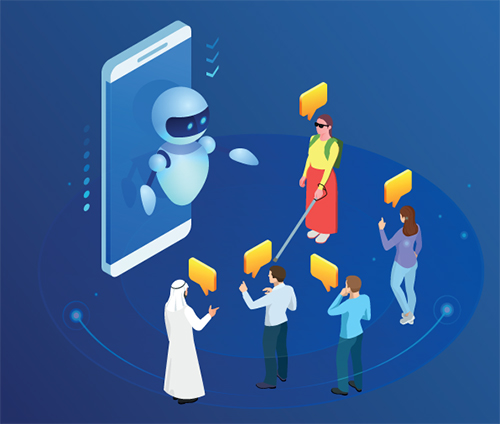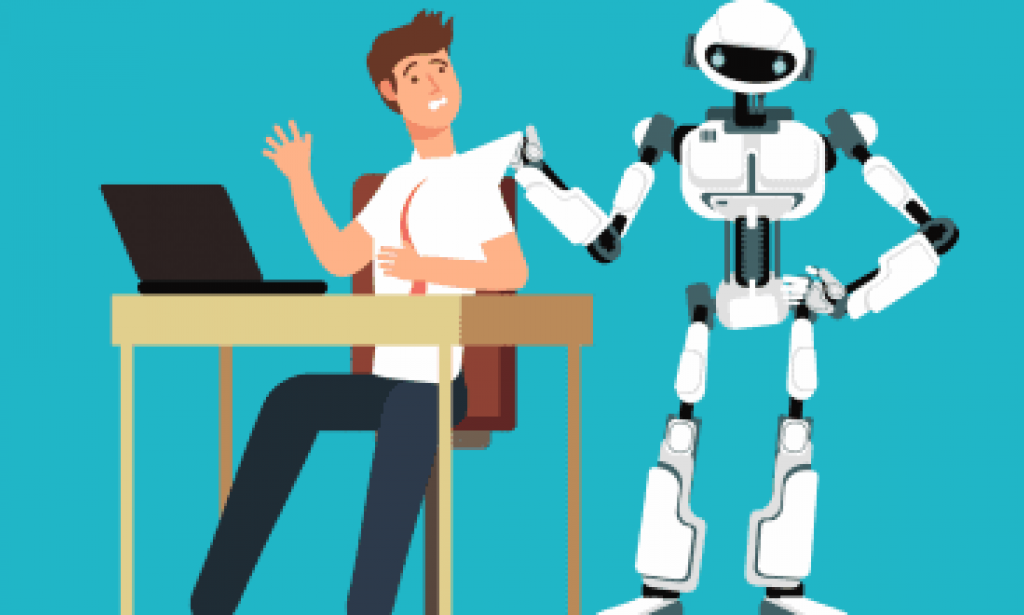Artificial intelligence (AI) is a field of computer science and engineering that focuses on the design of intelligent agents, which are systems that can reason, learn, and act autonomously. AI has come a long way in recent years, and there are many applications for it across many industries. From entertainment to healthcare, from manufacturing to finance, AI has the potential to change the way we live and work.
In this post, we will be discussing what AI is, where it is going, and some of its most prominent applications. We will also provide you with a few resources to help you learn more about this fascinating field. So whether you are interested in learning more about the future of AI or just want to be up to date on the latest trends, read on!
1. What is AI, and what are its benefits?
Artificial intelligence, or AI for short, is a computer system that can be taught to do tasks that humans can do. It has many benefits, including making it easier to search for information, making it possible to create and interpret complex data sets, and automating tasks that would be difficult or time-consuming for humans to do.
AI is already being used in many applications, including search engines, customer service, and marketing. In the future, it is likely that AI will become even more integrated into our everyday lives, helping us to navigate our surroundings, manage our finances, and even help us make decisions.
2. How AI is being used today
Artificial intelligence (AI) has been around for a while now, but its recent growth in popularity is due to its many potential uses. From helping businesses automate tasks, to enhancing customer service, to creating new products and services, AI is having a huge impact on how we live and work.
Here are four of the most common ways AI is being used today:
1. AI is being used to help businesses automate tasks. One example is a company that uses AI to help manage customer service. AI can learn how customers behave and then use that information to help human employees service customers more efficiently.
2. AI is being used to enhance customer service. AI can be used to identify patterns in customer service interactions and then provide improved service. For example, if you call customer service and the representative is always asking you the same questions, an AI-powered system could suggest alternatives to help the conversation move along more quickly.
3. AI is being used to create new products and services. AI can be used to design products or to create new services that are better than what is currently available. For example, AI can be used to design a new type of car or to recommend products to customers.
4. AI is being used to prevent harm. AI can be used to identify potential threats and then take appropriate action. For example, AI can be used to prevent fraud or to protect people's safety.

3. What the future of AI holds for us
Artificial intelligence is quickly becoming the technology of the future. It has the ability to learn and evolve on its own, making it one of the most important technologies we have today.
There are many different applications for AI, including but not limited to:
-Predicting the future
-Automated decision making
-Speeding up and improving business processes
-Managing large data sets
-Performing complex tasks
The possibilities are endless and the future of AI looks bright. With the right people and technology, AI can be used to improve everything from customer service to product development.
4. Ethics and AI
Artificial intelligence (AI) is defined as "the ability of a computer to perform tasks that normally require human intelligence."
AI is quickly becoming a staple in many businesses and industries. It is used in a variety of ways, from customer service to marketing.
There are a few key areas to watch when it comes to AI: ethics, regulation, and social implications.
Ethics is a big concern for many people. For example, should a computer be able to make ethical decisions? If so, what should those decisions be?
There is no right answer, but we need to start thinking about these questions and addressing them.
Regulation is also an important issue. How will governments regulate AI? Will they be able to keep up with the rapid pace of development?
It's important to stay ahead of the curve and be prepared for whatever comes next.
Social implications are another area of concern. For example, will AI lead to the elimination of jobs? Will it be used to manipulate people?
We need to be aware of these potential issues and figure out ways to address them.
Overall, AI is an important part of our future. We need to be careful not to misuse it, but we also need to be aware of the potential benefits it has.

5. Concerns around AI
Artificial intelligence, or AI, is a rapidly growing and evolving field of computer science and engineering. It is defined as "the ability of a computer system to simulate or replicate the actions or behavior of a human or other intelligent agent."
There are many concerns that are being raised about the potential future implications of AI, including concerns about its potential use in military and surveillance applications as well as its impact on jobs.
There are also concerns about the impact of AI on our social and economic systems, and the possibility that it could lead to the emergence of new forms of inequality.
Despite these concerns, there are also many positive implications of AI, including its potential to improve our ability to process and respond to information, and its potential to help us make better decisions.
6. How to learn more about AI
Artificial intelligence (AI) is the next big thing. With AI, machines can learn and work on their own, making them better at certain tasks. Currently, AI is being used in a number of different industries, from healthcare to finance.
Here are five ways you can learn more about AI and its potential.
1. Watch a documentary about AI. Documentaries are a great way to learn about a topic in depth and without the need to read between the lines. There are a number of great documentaries about AI available online, such as "The Future of Life" and "The Right Brain."
2. Read articles about AI. Articles are a great way to get a deeper understanding of a topic. There are a number of great articles about AI available online, such as "Why AI Is the Future of Healthcare" and "The Top 10 Uses for AI in Finance."
3. Attend a conference related to AI. Conferences are a great way to network with other professionals and learn about new developments in the field. There are a number of great AI-related conferences available online, such as the IEEE Intelligent Systems Conference and the International Conference on Machine Learning.
4. Use AI in your own projects. AI can be used in a number of different ways, from creating new marketing campaigns to automating your business processes. If you want to learn more about how to use AI in your own projects, check out a few resources, such as "How to Use AI for Marketing" and "5 Incredible Uses for AI in Business."
5. Use AI to learn more about yourself. AI can be used to learn more about yourself, from your likes and dislikes to your career goals. There are a number of great resources available online that will help you use AI to learn more about yourself, such as "How to Use AI to Understand Your Interests" and "How to Use AI to Strengthen Your Personal Leadership Skills."

7. How to apply AI in your life
Artificial intelligence (AI) is a field of computer science that deals with the creation of intelligent agents, which are systems that can reason, learn, and act autonomously.
AI has a number of potential applications, including but not limited to:
-Autonomous cars
-Speech recognition
-Fraud detection
-Genetic algorithms.
While AI has the potential to improve many aspects of our lives, there are also some concerns about its potential misuse. For example, facial recognition technology has the potential to be used to monitor and track individuals, and AI-driven financial planning could lead to widespread financial fraud.

8. The future of AI and the economy
Artificial intelligence has the potential to change the way we live and work. Already, AI is being used in a wide range of fields, from healthcare to finance. There are even predictions that AI could eventually take over many jobs currently performed by human beings.
So what is AI, and where is it going? In a nutshell, AI is a computer system that can learn on its own. It can identify patterns, make decisions, and even evolve over time. This is why it's so valuable in fields like finance and healthcare. AI can quickly and accurately analyze large amounts of data.
As AI develops, so does our understanding of the implications it has for the economy. For example, AI could help to reduce the cost of financial services. It could also help to improve the accuracy of predictions made by economists. In the future, AI may even be able to create new economic opportunities.
So far, AI has had a significant impact on a number of fields. It is only a matter of time before it has a profound impact on the economy as a whole.
9. Will AI replace human workers?
Artificial intelligence has been around for quite a while now, but it is only recently that it has been able to achieve the level of sophistication that we are seeing today.
One of the biggest applications of AI is in the field of automation and it is this technology that is likely to replace human workers in the not too distant future.
There are many jobs that are currently done by human beings that can be done by machines, but there are also many jobs that are unique to humans that will never be able to be done by machines.
For example, a human being can empathize with other humans and understand their emotions, a skill that machines will never be able to replicate.
10. The future of AI and education
Artificial intelligence, or AI for short, has been around for quite some time now, but it is only recently that it has been making headlines. In fact, some experts believe that AI will soon overtake human intelligence as the dominant form of intelligence on Earth.
There are a few reasons for this. First of all, AI is able to learn at an exponential rate. This means that it can adapt and evolve much faster than humans can. Secondly, AI is able to combine different forms of intelligence to create something that is even more powerful than any one individual. This is why AI has been able to create successful businesses and products.

Artificial intelligence is quickly becoming one of the most important technologies in the world. It has the potential to make our lives easier in so many ways, and it is only going to get more important in the years to come. In this article, we outlined the basics of AI and its history.
We also provided a few examples of how AI is being used currently, and we are sure that you will be interested in what is in store for the future of this technology. Be sure to read our blog post to learn more!
------------------------------


يجب عليك تسجيل الدخول لتستطيع كتابة تعليق